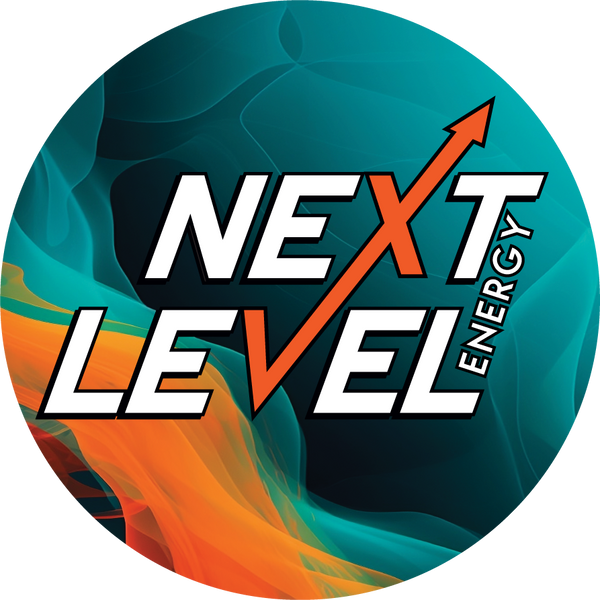
How Long Does an Energy Drink Last?
Share
The duration of the effects of an energy drink can vary significantly depending on several factors, including the individual's sensitivity to caffeine, the specific ingredients of the energy drink, and the amount consumed. However, we can offer some general insights into how long you might expect the effects of an energy drink to last.
Caffeine Absorption and Half-Life
Caffeine, the primary active ingredient in most energy drinks, is absorbed into the bloodstream within about 45 minutes of consumption. Its effects can be felt soon after absorption begins. The half-life of caffeine—the time it takes for the body to eliminate half of the caffeine consumed—is generally around 3 to 5 hours for most adults, but this can vary based on factors like age, body weight, and tolerance to caffeine.
Duration of Effects
- Initial Boost: The energizing effects of an energy drink are typically felt within 10 to 30 minutes after consumption, as the caffeine levels in the bloodstream begin to rise.
- Peak Effects: These effects usually peak about 30 to 60 minutes after consumption, when the caffeine concentration in the bloodstream is at its highest.
- Duration: The noticeable effects of an energy drink—increased alertness, concentration, and physical energy—can last anywhere from 3 to 6 hours, depending on the individual's metabolism and the amount of caffeine consumed. For people with a higher caffeine tolerance, the effects might not feel as pronounced or might last a shorter period.
Other Factors to Consider
- Sugar Content: Many energy drinks contain high levels of sugar, which can provide a quick energy boost. However, this is often followed by a "sugar crash," characterized by fatigue and decreased energy levels, which can occur a few hours after consumption.
- Other Ingredients: Energy drinks often contain other ingredients like taurine, B vitamins, and herbal extracts. The impact of these ingredients on energy levels and their duration can vary, and their effects are not as well-studied as caffeine.
- Tolerance: Regular consumption of caffeine can lead to increased tolerance, meaning that over time, it may take larger amounts of caffeine to achieve the same energizing effects.
Considerations for Consumption
While energy drinks can offer a temporary boost in energy and alertness, it's important to consume them responsibly. High consumption of caffeine can lead to side effects such as jitteriness, anxiety, heart palpitations, and disrupted sleep patterns. It's recommended to limit caffeine intake to about 400 milligrams per day for most adults, which is roughly equivalent to four 8-ounce cups of brewed coffee, though this can vary based on the specific energy drink and individual sensitivity.
In summary, the effects of an energy drink can last several hours, but this duration varies widely among individuals. Responsible consumption, considering both the caffeine content and other ingredients, is key to maximizing the benefits of energy drinks while minimizing potential adverse effects.
Caffeine Absorption and Half-Life
Caffeine, the primary active ingredient in most energy drinks, is absorbed into the bloodstream within about 45 minutes of consumption. Its effects can be felt soon after absorption begins. The half-life of caffeine—the time it takes for the body to eliminate half of the caffeine consumed—is generally around 3 to 5 hours for most adults, but this can vary based on factors like age, body weight, and tolerance to caffeine.
Duration of Effects
- Initial Boost: The energizing effects of an energy drink are typically felt within 10 to 30 minutes after consumption, as the caffeine levels in the bloodstream begin to rise.
- Peak Effects: These effects usually peak about 30 to 60 minutes after consumption, when the caffeine concentration in the bloodstream is at its highest.
- Duration: The noticeable effects of an energy drink—increased alertness, concentration, and physical energy—can last anywhere from 3 to 6 hours, depending on the individual's metabolism and the amount of caffeine consumed. For people with a higher caffeine tolerance, the effects might not feel as pronounced or might last a shorter period.
Other Factors to Consider
- Sugar Content: Many energy drinks contain high levels of sugar, which can provide a quick energy boost. However, this is often followed by a "sugar crash," characterized by fatigue and decreased energy levels, which can occur a few hours after consumption.
- Other Ingredients: Energy drinks often contain other ingredients like taurine, B vitamins, and herbal extracts. The impact of these ingredients on energy levels and their duration can vary, and their effects are not as well-studied as caffeine.
- Tolerance: Regular consumption of caffeine can lead to increased tolerance, meaning that over time, it may take larger amounts of caffeine to achieve the same energizing effects.
Considerations for Consumption
While energy drinks can offer a temporary boost in energy and alertness, it's important to consume them responsibly. High consumption of caffeine can lead to side effects such as jitteriness, anxiety, heart palpitations, and disrupted sleep patterns. It's recommended to limit caffeine intake to about 400 milligrams per day for most adults, which is roughly equivalent to four 8-ounce cups of brewed coffee, though this can vary based on the specific energy drink and individual sensitivity.
In summary, the effects of an energy drink can last several hours, but this duration varies widely among individuals. Responsible consumption, considering both the caffeine content and other ingredients, is key to maximizing the benefits of energy drinks while minimizing potential adverse effects.
